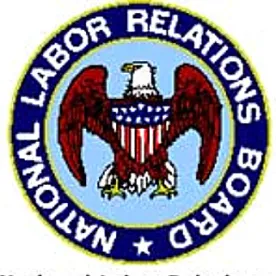On June 27, 2017, President Trump nominated labor attorney William J. Emanuel to fill one of two vacancies to the National Labor Relations Board (NLRB). This follows closely on last week’s nomination of Marvin E. Kaplan to fill the other vacancy. Currently, the Board is comprised of Democrat members Mark Gaston Pearce and Lauren M. McFerran as well as Republican member and newly-appointed Chair, Phillip A. Miscimarra. Former union attorney Richard F. Griffin Jr.’s term as General Counsel expires at the beginning of November. Thus, despite the fact that President Trump assumed the presidency in January of this year, the Board has continued to operate in the same fashion as it has for the last eight years. These nominations are the first step towards correcting the policy missteps that have occurred at the Board over this time period.
Both Emanuel and Kaplan come with many years of labor law experience. Emanuel is a shareholder in the Los Angeles office of a national labor and employment firm where he advises employers on traditional labor law matters. His firm biography touts him as having an expertise regarding union access to employers’ private property. Kaplan was most recently counsel to Heather L. MacDougall, former Acting Chair of the Occupational Safety and Health Review Commission (OSHRC). Prior to his position with OSHRC, Kaplan served as the Republican workforce policy counsel for the House Education and the Workforce Committee.
It is still too early to predict how Emanuel and Kaplan will be received by the U.S. Senate, which must vote to approve their nominations. However, Board nominations can sometimes be contentious simply because of the significant role the Board plays in setting national labor policy.
What Will Be the Priorities of a Newly-Constituted Board?
For starters, the business community is hopeful that a new NLRB will review the previous Board’s dramatic policy shifts on joint employment, fractured bargaining units, ambush elections, and class action waivers in arbitration agreements, among other issues. Of course, the Board’s standards on joint employer and class action waivers are the subject of appeals currently awaiting decisions from the D.C. Court of Appeals and the Supreme Court of the United States, respectively. If these courts act before a new Board does, they could establish the contours for what the Board can or cannot do in these areas. Other issues such as employees’ use of company email for organizing purposes and employers’ abilities to establish reasonable workplace rules could also be addressed.
Besides getting a late start, there is another reason why the new Board might find it a bit difficult to hit the ground running: the continued presence of General Counsel Griffin. Many in the business community expect that Griffin will likely spend his remaining months in office trying to prevent or delay the new Board from advancing its new policy agenda. However, Griffin’s ability to do this is diminished with regard to representation decisions, so there may be some early opportunities for the new Board in this area.
Ultimately, history will judge the effectiveness of the new Board’s ability to return balance to our nation’s labor policy. For today, many employers are simply encouraged by this first step.




 />i
/>i
